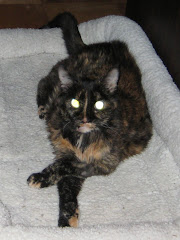President's Day Thoughts on Donald Trump's Leadership
There has not been a U.S. president in my lifetime whose election has so clearly defined the divisions in our nation as Donald J. Trump. On this day, his first President's Day in office, there are Not-My-President anti-Trump rallies being held in several major cities around the country, as there have been almost every weekend since his inauguration.Why all this hatred, most coming from the supposedly tolerant left? The same people going on about how "love trumps hate" seem filled with hatred for this man they refer to as a "Cheeto" or "the orange one." They want us to believe that his election was not "valid" and that he should be impeached, but can provide no legal evidence of actions for which he deserves impeachment. They belittle him in skits on Saturday Night Live, in comedy monologues at the opening of TV talk shows, and in subtle language choices when reporting on his actions in the news. Their vitriol is palpable.
Trump and his spokespeople have talked a lot about media bias, and it's one of those things that once you see it, you can't stop seeing it. The bias is obvious to anyone whose eyes are open.
Echoes of Another Leader
This hatred for Trump reminds me of that for another of our presidents, one who held the office over a century ago. That president is Theodore Roosevelt. Yes, that now-beloved leader who is the fourth face on Mount Rushmore was just as equally hated in his day as he was revered. The nation was similarly split over his boisterous, childish, egotistic personality. Remind you of anyone?This clip from the Brooklyn Daily Eagle appeared just after Roosevelt's death in 1919. A quote from the story: "He was at once the most hated and the best loved man of his age." Again, remind you of anyone?
Roosevelt was the one who called the presidency a "bully pulpit" - not in the same sense that we use the term bully today, but as his day's version of the now-ubiquitous "awesome!" He was fond of using that term to express his admiration for something: "Bully!"
T.R. had a habit of using his own words for things, words that had not before been a part of the English lexicon. Sort of like Trump uses words like "bigly" in his speeches. We all know what they mean, but those who choose to view Trump as a cretin seize upon those words as evidence of their point...just as they did when Teddy would say, "Bully!"
Also a Republican, Roosevelt became unpopular with others in his party while serving as Governor of New York. They nominated him for Vice President to get him out of their way. This put him into position to move into the U.S. presidency when President McKinley was assassinated. So in his first term, T.R. had not won popular election to the office...just as Trump's detractors keep pointing to by championing the popular vote.
Encyclopedia.com refers to T.R.'s term as "the first modern presidency." His similarities to Trump are really quite astounding. Roosevelt's presidency was marked by these leadership traits:
- using his position in the White House to set the social mood of the nation
- deploying the U.S. military around the world without consulting Congress
- issuing executive orders to initiate major policy changes
- speaking with bravado: "Speak softly and carry a big stick; you will go far."
- working with an energy level unmatched by his predecessors
According to Ken Burns' biopic, The Roosevelts, a contemporary once described being around T.R. as "like being around a six-year-old child."
Sounds a lot like what they're saying about Trump, doesn't it?
like he's doing the "Gator chomp"!
What T.R. Accomplished
And yet this man so vilified in his own time gave us our first national park and created the first federal regulation of business.
The business climate in Roosevelt's day was quite different from that of today...and yet similar in many ways. A few large companies, built by outsiders from the old political ruling class, effectively controlled their industries and determined the course of the nation's economy. They were putting big profits into their owners' pockets, while the working class made far less for their contributions. It was more than they'd ever made before, but paled in comparison to the owners' profits from the companies.
These same companies were rapidly and clumsily depleting the nation's natural resources through unsustainable mining and forestry practices. Clear-cutting of forests and mining that highly polluted nearby water sources were commonplace. Because the new economic elite did not share the noblesse oblige of the previous ruling class, they saw no reason to consider the greater good of society over their own profit.
Certain nations of the world in Roosevelt's day had also become quite imperialistic, conquering smaller nations around the world to build their empires. The United States had traditionally pursued an isolationist policy in these matters. Previously "uncivilized" nations were viewed as being lifted up by these practices.
No U.S. president in Roosevelt's time had ever taken on any of these behemoths. And why should they? Politicians of the time had been cut in on the deal and were making lots of money from business as usual. It was not in their personal best interests to change the status quo.
Roosevelt spoke out about all of these issues, in an enthusiastic manner that was often out of place in his time, while in other ways right in line with commonly held views of the day. Fiercely patriotic, he certainly did not seem "presidential" to his detractors, most of whom were those self-made businessmen who had been running things.
Sounds a lot like what's going on today, doesn't it?
The Similarities Between Trump and Roosevelt
In both times, one man who saw these things and said, "Enough!" rose to the challenge. Theodore Roosevelt had overcome childhood infirmity to serve in some elected offices, embark on numerous adventures, write some books, and experience failure as a rancher. But at the time he ran for president, he was enjoying life with his large family on their estate. Why should he give up that life for the presidency?
After two failed marriages and well into his third, Donald Trump was busy running his various businesses, writing books, and enjoying life with his family. He had a vast fortune and was doing what he loved. Why would he put it all on the line for the presidency?
While both men share the trait of tremendous ego that is often viewed as arrogance, there's more to their decision than that. There's a sense of injustice occurring in the nation, and the sense that they can help put things right. Indeed, a sense that they are the only person who can put things right.
When Trump talks about "making America great again" he's not referring to what his detractors like to view as a time of Jim Crow laws and worker oppression. Quite the opposite. He's talking about a time when our nation was a shining beacon on the hill to oppressed people around the globe: a vision of hope in a hopeless world. A land of opportunity where nobody is held back by their past, and anybody who is willing to work hard and invest of themselves can achieve greatness.
"Very much in the fashion of his times, Roosevelt viewed the world in terms of struggle between good and evil, between the righteous and the unjust, between civilization and barbarism. For the righteous to shrink from power would be to yield the arena to the unworthy."
What's Different Today
Had Twitter existed in T.R.'s time, you can bet your bottom dollar that he'd have been posting to it daily! His platform was the speaking podium, that "bully pulpit" as he referred to it. From there he made his points. Roosevelt's was a more leisurely age, when people had plenty of time to ruminate over sounding educated and presidential in their speeches. Quotes from the time bear up this point:
"To sit home, read one's favorite paper, and scoff at the misdeeds of the men who do things is easy, but it is markedly ineffective. It is what evil men count upon the good men's doing."
"Much has been given us, and much will rightfully be expected from us. We have duties to others and duties to ourselves; and we can shirk neither. We have become a great nation, forced by the fact of its greatness into relations with the other nations of the earth, and we must behave as be seen as a people with such responsibilities."
Today's ever-present social media, blogosphere, and paparazzi make any semblance of private life a pipe dream for public officials. Every blunder becomes ubiquitous in the public consciousness, always spun to the viewpoint of the reporter. We cannot turn away from the media sideshow without completely unplugging.
The public has no patience, either. Our gotta-have-it-now culture has made us restless and constantly seeking instant gratification. If an elected official doesn't solve the problems of the world after a week in office, he's deemed a failure. "We always knew it!" the detractors chant. "See? We were right about him all along!"
Time Will Tell
Over the past century, Teddy Roosevelt has become remembered for his positive accomplishments. We now view his personality as fun and eccentric, not abrasive and childish. He's considered one of America's greatest presidents, earning him that fourth spot on Mount Rushmore.Only historians will determine how effective of a president Donald Trump will be. Those historians won't write that story until long after we're gone. One thing they will all agree on is his polarizing personality...just like Roosevelt's before him.









